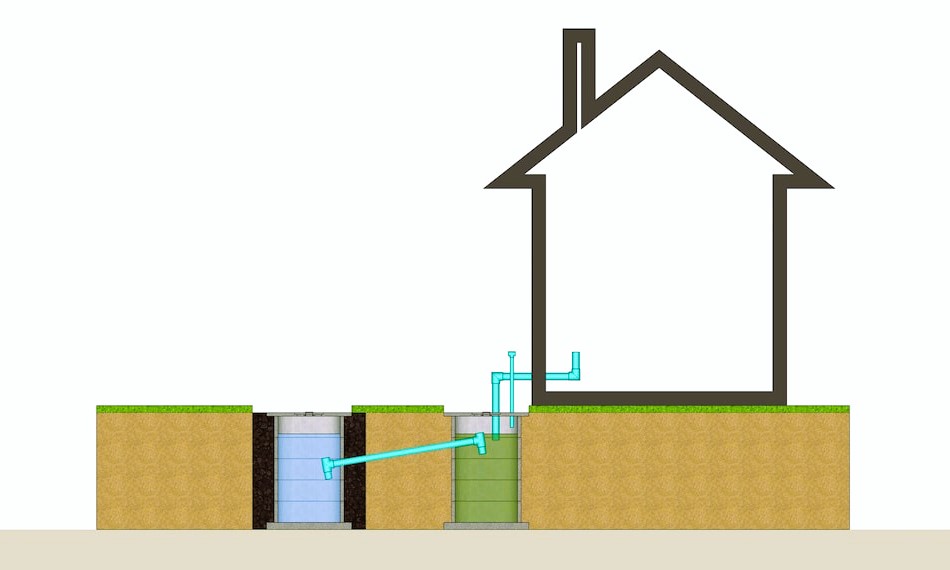Regular septic tank pumping is essential for maintaining a properly functioning septic system. The frequency of septic tank pumping depends on various factors, including the size of the tank, the number of occupants in the household, water usage patterns, and the climate of the region. This article explores the factors to consider when determining the septic tank pumping frequency for your home in Calgary. Reputable sources such as Wikipedia and the Government of Canada’s official website (canada.ca) provide valuable information on septic systems and maintenance.
Factors Affecting Septic Tank Pumping Frequency
- Tank Size: The size of your septic tank is a critical factor in determining the pumping frequency. Larger tanks have a higher capacity to hold solids, allowing for longer intervals between pumping. Smaller tanks require more frequent pumping to prevent solids from accumulating and potentially clogging the system.
- Household Occupancy: The number of occupants in your household directly affects the amount of wastewater generated. More occupants mean increased water usage, which leads to a higher volume of wastewater entering the septic tank. As a result, the septic tank may require more frequent pumping to maintain proper functionality.
- Water Usage Patterns: Water usage patterns play a significant role in determining septic tank pumping frequency. High water usage activities such as frequent laundry, long showers, or excessive dishwashing can overload the septic system and necessitate more frequent pumping. Conserving water and adopting water-efficient practices can help extend the time between pumpings.
- Type of Waste: The type of waste entering the septic system affects the decomposition process and the accumulation of solids. For example, the presence of non-biodegradable materials or excessive use of chemicals can hinder the natural breakdown of waste, leading to faster filling of the septic tank. Proper waste management practices can help mitigate this issue and reduce the pumping frequency.
- Climate: The climate of Calgary can influence the septic tank pumping frequency. Colder climates, such as in Calgary, can slow down the natural breakdown of waste due to lower microbial activity. Consequently, septic tanks in colder climates may require more frequent pumping to prevent solids buildup and maintain system efficiency.
Guidelines for Septic Tank Pumping Frequency
As a general guideline, septic tanks should be pumped every 3 to 5 years. However, individual circumstances may warrant more frequent pumping. To determine the optimal pumping frequency for your septic system, consider the following:
- Previous Pumping History: If your septic system has a history of regular pumpings every few years, following the same schedule is a proactive approach to septic system maintenance.
- Tank Inspection: Periodic inspections of your septic tank can provide valuable insights into its condition and help determine the need for pumping. If the accumulation of solids reaches a certain level, pumping may be required even if the recommended time interval has not elapsed.
- Professional Consultation: Consulting a professional septic service provider is highly recommended. They can assess your specific situation, including the tank size, household occupancy, water usage patterns, and other factors, and provide expert advice on the appropriate pumping frequency. Understanding Property Laws in Canada: We have prepared a guide for homeowners for you.

Standardization and Resources
Standardization plays a crucial role in ensuring the quality and reliability of septic system maintenance. Reputable sources such as Wikipedia and the Government of Canada’s official website (canada.ca) provide comprehensive information on septic systems, maintenance practices, and guidelines for septic tank pumping.
For detailed insights into septic tank pumping frequency and industry standards, consider referring to the following resources:
- Government of Canada – Onsite Sewage Systems
These sources offer valuable information on septic system maintenance, guidelines for pumping frequency, and factors to consider for your home in Calgary.
Conclusion
Determining the septic tank pumping frequency for your home in Calgary requires considering various factors such as tank size, household occupancy, water usage patterns, waste type, and climate. Adhering to a regular pumping schedule based on these factors is crucial for maintaining a healthy septic system. Consult reputable sources and industry professionals to understand the guidelines and best practices for septic tank pumping frequency. Prioritize the regular maintenance of your septic system to ensure efficient wastewater management, prevent backups, and prolong the lifespan of your septic system.

